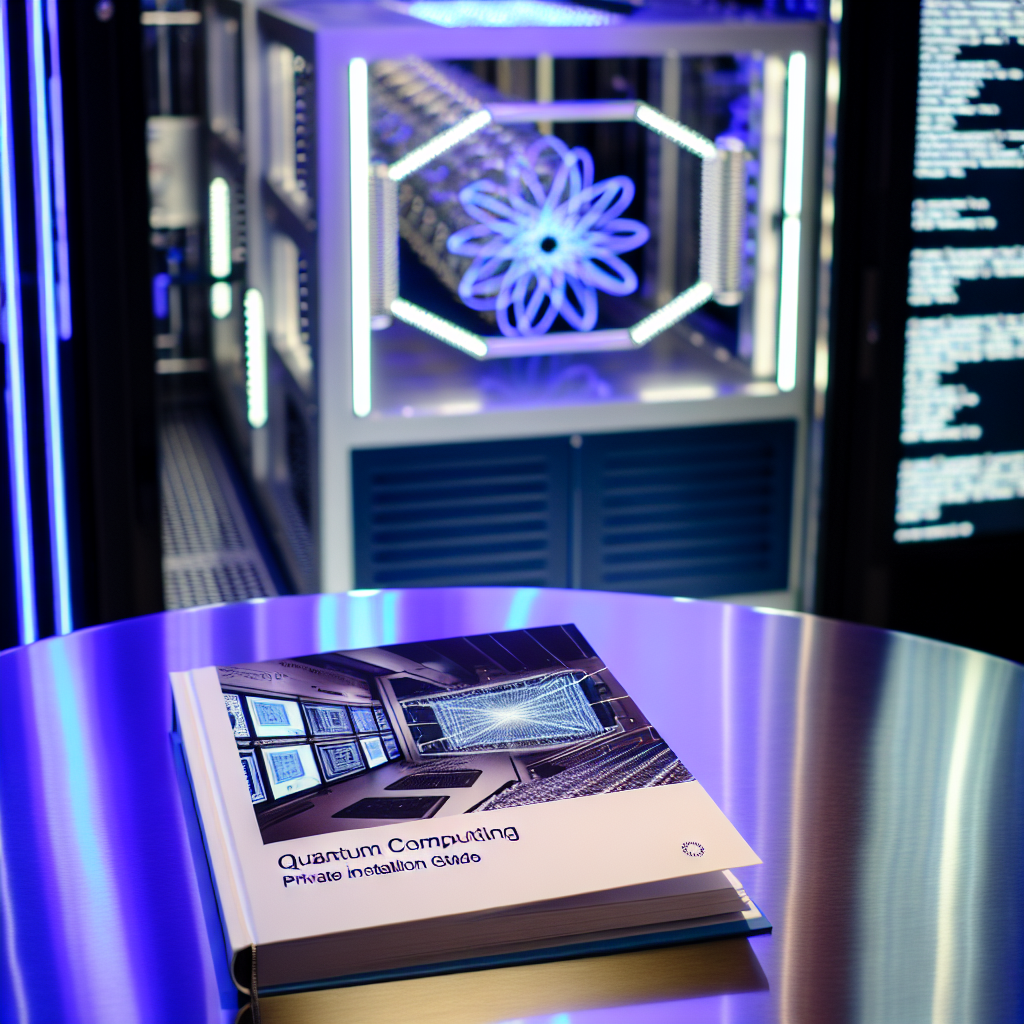Quantum Computing: Private Installation Guide
Introduction: Unlocking the Ultimate Computational Power
Quantum computing represents the pinnacle of modern computational power, leveraging qubits that can exist in multiple states simultaneously due to the principles of superposition and entanglement. This capability enables exponential leaps in processing speed, making quantum computers ideal for tackling complex problems in cryptography, artificial intelligence, financial modeling, and high-end scientific research.
Traditionally, quantum computing has been the domain of elite research institutions and large technology conglomerates. However, the landscape is changing, allowing affluent individuals and businesses to install private quantum computing systems, granting them an unprecedented edge in data analysis, cybersecurity, and proprietary research.
Setting up a private quantum computing system requires careful consideration of critical factors, including specialized cryogenic infrastructure, reputable vendors, and a team of highly skilled professionals, from quantum physicists to software developers.
The Unmatched Potential of Private Quantum Computing
Quantum computing has transcended the theoretical stage, with numerous research initiatives validating its immense potential across industries. Some of the most notable breakthroughs include:
Superiority in Complex Problem Solving
A study by Google AI Quantum confirmed quantum supremacy, demonstrating that a quantum processor completed a highly complex computational task in 200 seconds, whereas the most powerful classical supercomputer would have required over 10,000 years to achieve the same result [(Arute et al., 2019)](https://www.nature.com/articles/s41586-019-1666-5). This underscores the immense advantage of quantum computing in areas such as financial trading simulations, AI-driven predictive modeling, and secure encrypted communications.
Revolutionizing Medical and Pharmaceutical Research
A paper published by *npj Quantum Information* explored how quantum algorithms could vastly improve molecular simulations, aiding pharmaceutical companies in drug discovery by expediting the development of groundbreaking medications [(Babbush et al., 2020)](https://www.nature.com/articles/s41534-020-0278-0). For those in positions of wealth and influence, a private quantum system could be leveraged to fund personalized medicine, genetic research, and high-end health optimization.
Fortifying Cybersecurity with Quantum Encryption
One of the most significant applications of quantum computing for high-net-worth individuals lies in cybersecurity. Traditional encryption models are potentially vulnerable to quantum-based attacks. However, post-quantum cryptography and quantum key distribution (QKD) offer nearly unbreakable encryption, as highlighted in a report by MIT’s Computer Science and Artificial Intelligence Laboratory (CSAIL) [(MIT CSAIL, 2021)](https://www.csail.mit.edu). Integrating quantum-enhanced privacy infrastructures into a secure installation will ensure enhanced protection against evolving cyber threats.
Essential Components of a Private Quantum Installation
For a private individual or business seeking to install a quantum computing infrastructure, professional consultation is paramount. A paper by IBM Research discussed the critical environmental and engineering requirements for quantum deployment [(Gambetta et al., 2020)](https://www.ibm.com/quantum-computing/).
Cutting-Edge Cryogenic Infrastructure
Quantum processors must operate at temperatures close to -273°C (absolute zero) to maintain qubit coherence, necessitating advanced dilution refrigeration systems. This requires specialized facilities designed to support ultra-low temperatures without affecting operational stability.
Advanced Noise Reduction & Electromagnetic Shielding
Quantum systems are highly sensitive to electromagnetic interference, which can cause qubit decoherence and affect computational accuracy. Therefore, installations must include shielding and state-of-the-art noise reduction technologies to ensure an optimal operating environment.
Dedicated Team of Quantum Experts
Setting up a private quantum computing system requires a dedicated team of highly skilled professionals, including quantum physicists, engineers, and software developers specializing in quantum algorithms.
Conclusion: The Future of Elite Technological Ownership
Quantum computing represents the pinnacle of modern luxury technology, offering unparalleled computational power for private innovators, investors, and medical researchers alike. With elite professional guidance, cutting-edge infrastructure, and strategic use, a personal quantum installation establishes a definitive competitive advantage in fields such as secure communication, drug discovery, and high-speed financial modeling.
By embracing quantum computing through private installation, those with vision and resources can redefine the limits of what’s possible—setting new standards for innovation, security, and elite technological ownership.
**Summary:**
This article explores the key components, professional insights, and critical considerations for setting up a private quantum computing system that ensures unparalleled computational power within a lavish and exclusive technological experience. The article highlights the superior problem-solving capabilities, revolutionary potential in medical and pharmaceutical research, and the importance of fortifying cybersecurity with quantum encryption. It also discusses the essential infrastructure, including cutting-edge cryogenic systems, advanced noise reduction, and a dedicated team of quantum experts. By embracing private quantum computing, individuals and businesses can redefine the limits of innovation, security, and elite technological ownership.
**References:**
– Arute, F., et al. (2019). *Quantum supremacy using a programmable superconducting processor.* Nature. [https://www.nature.com/articles/s41586-019-1666-5](https://www.nature.com/articles/s41586-019-1666-5).
– Babbush, R., et al. (2020). *Advances in quantum chemistry simulations with quantum computing.* npj Quantum Information. [https://www.nature.com/articles/s41534-020-0278-0](https://www.nature.com/articles/s41534-020-0278-0).
– MIT CSAIL. (2021). *The future of quantum cybersecurity.* [https://www.csail.mit.edu](https://www.csail.mit.edu).
– Gambetta, J., et al. (2020). *Engineering requirements for quantum systems.* IBM Quantum. [https://www.ibm.com/quantum-computing/](https://www.ibm.com/quantum-computing/).

Dominic E. is a passionate filmmaker navigating the exciting intersection of art and science. By day, he delves into the complexities of the human body as a full-time medical writer, meticulously translating intricate medical concepts into accessible and engaging narratives. By night, he explores the boundless realm of cinematic storytelling, crafting narratives that evoke emotion and challenge perspectives. Film Student and Full-time Medical Writer for ContentVendor.com




